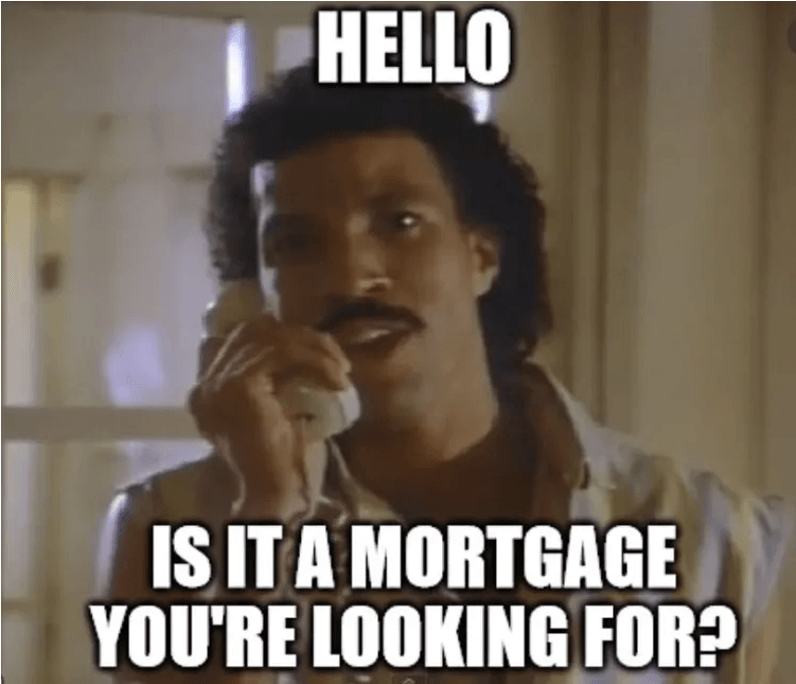WHAT HOME LOAN IS RIGHT FOR YOU?
Deana Devereaux • August 18, 2021
If you’re about to start the home buying process, you may be wondering where to start. The best place to start is a pre-approval from a reputable home loan company. What’s the point in looking at houses if you can’t immediately put an offer on one you like? Let’s face it, in this market homes are selling like hot cakes and buyers are at a serious disadvantage if they don’t get a pre-approval before looking at homes. When considering mortgage companies, you may be overwhelmed with all the different types of loan options available. We’re going to give you an overview of the different home loans available to you.

CONVENTIONAL
There are two types of conventional loans:
● Conforming: Conforming conventional loans fall within the maximum loan limits set by the Federal Housing Authority.
● Non-conforming: Non-conforming loans or jumbo loans exceed the maximum loan limits set by the FHA. Jumbo loans start at anywhere from $548,000 to $822,000 depending on the cost of living in the area.
Conventional loans typically require a 20% down payment. You can still get a conventional loan without a 20% down payment but you will be required to pay private mortgage insurance or PMI. PMI is added on to your monthly payment. It essentially acts as the bank's insurance policy that you will pay your loan.
If you can afford to put 20% down, then a conventional loan is a great option for the average home buyer.
ADJUSTABLE-RATE MORTGAGES
Different from fixed-rate mortgages, adjustable-rate mortgage’s interest rates fluctuate over the life of the loan. Many adjustable-rate mortgages have balloon payments after the first few years. What that means is that the interest is low for the first three or four years and then at year five, the interest rate skyrockets and so do your monthly payments. Adjustable-Rate Mortgages are good for someone who isn’t going to be in the home long-term. You can also refinance before the balloon payment to keep your monthly payments low.
FIXED-RATE MORTGAGES
Just as the name sounds, fixed rate mortgages are mortgages with interest rates that stay the same throughout the life of the loan. Loan terms on fixed-rate mortgages are typically 15 to 20 years long. The benefit of a fixed-rate mortgage is your monthly payments won’t change over the life of the loan.
The fixed-rate mortgage is a great option for someone who is planning to be in their home for many years and likes a predictable mortgage payment.
GOVERNMENT INSURED MORTGAGES
● FHA: FHA loans make home ownership possible for people who don’t have 20% down payment and/or don't have a stellar credit score. To qualify, you need at least a 580-credit score and a 3.5 percent down payment. FHA loans do require some up-front payment. The mortgage insurance premium is charged in two installments: one at closing and annually over the life of the loan.
● VA: If you’ve served in the military or are a family member of someone who has served in the military then you qualify for a VA loan. VA loans are great because they are low-interest and do not require a down payment or mortgage insurance. Oftentimes you can roll in your closing costs into a VA loan, too!
● USDA: The USDA loan program is designed for purchasing a home in a rural area. The USDA has promulgated a list of criteria that the home must meet in order to qualify as a rural area home.
A licensed mortgage lender can help you decide what loan works best for you. Each loan type has different requirements for eligibility, and each have their own specifications for the type and number of documents that are required. Approach the home loan process with an open mind, the mortgage lender is there to help guide you through the process. Here are some tips to help your pre-approval process go smoother:
● Gather all financial documents such as bank statements, pay stubs, and tax forms
● Don’t make any large purchases
● Don’t open new lines of credit
Your mortgage lender will need your full financial picture. The better prepared you are, the faster you’ll get pre-approved!
Remember, the sooner you are pre-approved the sooner you can start making offers on your dream home. Don’t wait to get pre-approved, you may lose out on the home of your dreams to a buyer who has already gone through the pre-approval process. One of our mortgage lenders is happy to help you through the pre-approval and home loan process. Contact us today for more information!
CHECK OUT SOME OF OUR RECENT BLOG POSTS

It’s important to stay up to date on the ever-changing landscape that is the mortgage industry. It’s possible that the newest laws passed by congress, Fannie Mae, and Freddie Mac could affect those looking to get a mortgage, or refinance in the coming months. We’ve put together all the latest on the newest and upcoming mortgage laws affecting the industry. Additional due diligence for condo buyers If you’re looking at buying a condo that is 20 years or older, you may have to jump through a few extra hoops before signing the final loan docs. Conventional loan buyers will have to go through an additional due diligence process that includes obtaining answers on safety, soundness, structural integrity, and habitability of condos from the condo association before the loan can be processed. If you’re looking at a condo this spring, it’s best to get prepared now. While this extra due diligence step is a pain, it’s in your and your lenders best interest. This extra due diligence step was born out of the devastation of recent condo building collapses in the U.S. New fees for vacation home financing and high-balance loans If you thought 2022 was the year for. A second home, vacation home or jumbo upgrade, it may still be but you’re going to be looking at additional fees. Upfront fees for these types of loans are expected to increase between 1.125 percent to 3.875 percent. Fannie Mae and Freddie Mac explain that these increases in the second home market are to keep first-time homeownership rates low and facilitate equitable and affordable housing. You can still buy down these increases with points just like you can buy down an interest rate. This rate increase comes as we saw the housing market skyrocket and borrowers take on additional debt to compete in this hot market. Self-employed borrowers rejoice – loosened regulations Thanks to the pandemic, the number of freelanced workers has increased. The good news keeps on coming because lending criteria has relaxed for self-employed borrowers. The COVID-19 pandemic saw an increase in requirements for self-employed borrowers. If you’re a freelancer, you no longer need to provide year-to-date profit and loss statements and three months of bank statements. We’re back to the good old days of using tax returns to show income! If you’ve been waiting to buy a home because you’re a self-employed borrower, now is the time! In the past, borrowers had to show creditworthiness through any number of on time loan payments including credit cards, first mortgage loans, car loans and more. The strict creditworthiness requirement affected many buyers that did not have credit cards, mortgage loans, or car loans. Now your mortgage loan provider can use a verification tool to check bank deposits for on-time rental payments, and other creditworthiness information. Say goodbye to mounds and mounds of paperwork proving you pay your loans on time!

The real estate agent that you’re working with to buy your home should be your advocate. You want to ensure that they are aware of all risks and benefits associated with the property you’re looking to buy. There is a major benefit in having a good real estate agent because they can ultimately help you make money on the purchase of your home in the long run. If your agent shows you homes where you could add an additional bedroom or bathroom or they show a property where you could finish the basement, they’re helping you gain equity in the property. On the flip side of that, if they don't understand your search area and they show you a home that is overpriced and they suggest that you go in over the true value of that home, you’re losing money on the transaction. It’s important to work with someone that you trust to guide you through the process and help you make decisions that will help your bottom line, not hurt it.

Step 1 – Decide How You’re Going to Use the Second Home Your down payment requirements and loan types will differ depending on what you plan to use your second property for. For example, do you plan to use it as a vacation home, secondary residence, or full-time rental property? A vacation home or secondary residence may qualify for a conventional home loan. When qualifying for a second conventional loan, the process is much like your first mortgage except you will be required to put down 10 percent. If you are purchasing the home to use as an investment property or full-time rental, you won’t qualify for certain loan types such as FHA or VA loans. You will also be required to put down a larger down payment than a vacation home or secondary residence. In addition, you may have to meet stricter debt to income ration requirements. All hope is not lost though! You can still qualify for a vacation home or secondary residence if you plan to rent the home out on apps like Airbnb. Typically, you must occupy the home for some portion of the year, and the home must be a one-unit home that can be used year-round. We can help you figure out what loan type you qualify for. Step 2 – Save For Your Down Payment There are multiple ways to complete this step. You can save the traditional way and put away a portion of your paycheck every month. You can also use the equity in your primary home to fund the down payment of your second home. There are multiple programs available such as: · Cash out refinance: A cash out refinance allows borrowers to borrow up to 80% of their home’s current value. The only caveat with this option is that your primary home’s monthly payment will increase. · HELOC: A HELOC, otherwise known as a Home Equity Li ne of Credit. This avenue differs from a cash out refinance because you are not refinancing your primary home’s mortgage. This is a good option if current interest rates are higher than your primary home mortgage interest rate. The last thing you want to do is refinance to a higher interest rate!

